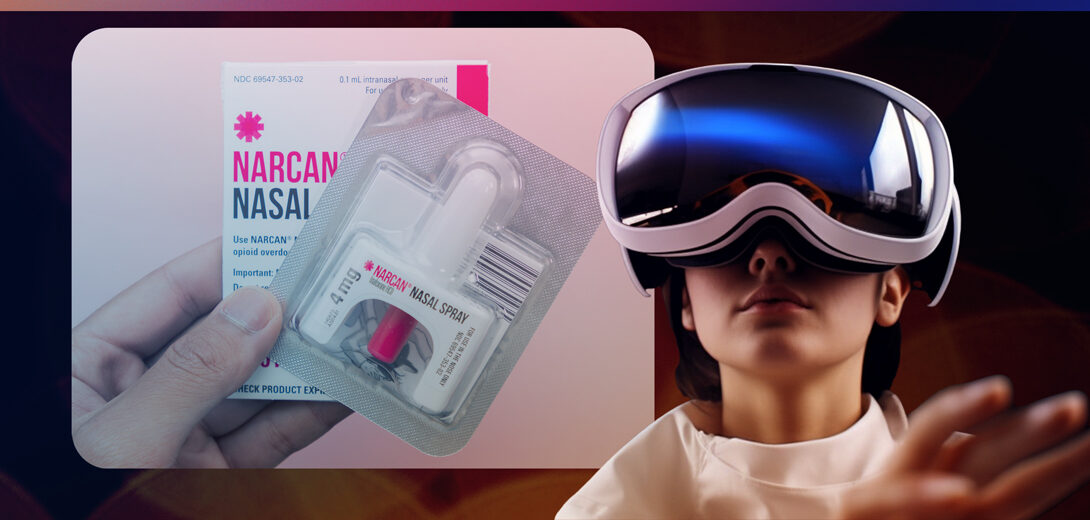Practicing overdose crisis response in virtual reality

Introduction
A biomedical visualization alumnus has developed virtual reality training to help bystanders use naloxone for opioid overdoses.
The Virtual Reality Embedded Naloxone Training program could be especially useful in communities where emergency medical service is not immediately available.
The program "pairs augmented and virtual reality with hands-on practice for administering naloxone,” said Scott Barrows '76 BS BVIS, former director of the Program in Biomedical Visualization and a member of the project team working in collaboration with educators from Southern Illinois University and Illinois State University.
Text

Users wear a headset that blends digital content with their actual environment. The training program begins with education on the dangerous misuses of opioids, then launches life-like scenarios that require naloxone. Users are transported to a dim nightclub holding a Narcan dispenser, giving the drug through virtual nostrils amid the loud music and the crowd.
“We’re creating training that mimics hectic moments so people can feel prepared,” said Barrows, director of OSF Innovation’s Jump Design Lab and a clinical faculty member in BVIS and the University of Illinois College of Medicine Peoria.
Barrows, who began his career in medical illustration, was director of BVIS from 1999 to 2011. He co-developed the first software for the projected aging of missing children, used by law enforcement and the National Center for Missing and Exploited Children. He also collaborated with Steve Jobs and worked on the science fiction movie “Solaris.”
For his latest venture into virtual reality, he is developing life-saving training for those most affected by the opioid epidemic.
The virtual training acclimates users to the stressful realities of an overdose situation without risk. According to Barrows, the program will “show people why opioids are so dangerous, actually show them what’s going on in the brain when someone overdoses.”
The program is funded by the Illinois Innovation Network as part of the Sustaining Illinois program, which encourages collaborative research among state public universities on the economic, health-related and social well-being of Illinois communities.
Barrows will bring the training into communities for feedback and field testing in partnership with Peoria-based startup hub Distillery Labs.
“We’re able to focus on vulnerable rural and urban communities to ensure our training tech makes the most impact possible,” he said.
This article has been edited for length and clarity by Emily Parenti-Lopez.